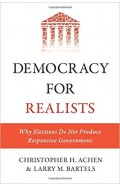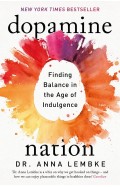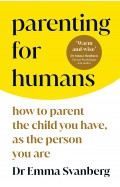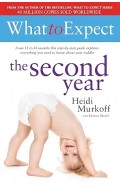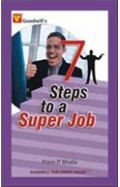Why Politics Fails
By: Ben Ansell
-
Rs 3,650.75
- Rs 4,295.00
- 15%
You save Rs 644.25.
Due to constant currency fluctuation, prices are subject to change with or without notice.
_____
Why do the revolving doors of power always leave us disappointed? In Why Politics Fails, award-winning Oxford professor Ben Ansell shows that it's not the politicians that are the problem, it's that our collective goals result in five political 'traps'.
Democracy: we all want a say in how we're governed, but it's impossible to have any true 'will of the people'. Equality: we want to be treated equally, but equal rights and equal outcomes undermine each other. Solidarity: we want a safety net when times are tough, but often we care about solidarity only when we need it ourselves. Security: we want protecting from harm, but not if it undermines our freedoms. Prosperity: we want to be richer tomorrow, but what makes us richer in the short run makes us poorer over the long haul.
You've probably noticed a pattern here, which is that our self-interest undermines our ability to deliver on our collective goals. And these traps reinforce one another, so a polarized democracy can worsen inequality; a threadbare social safety net can worsen crime; runaway climate change will threaten global peace.
Drawing on examples from Ancient Greece through Brexit and using his own counterintuitive and pathbreaking research - on why democracy thrives under high inequality, and how increased political and social equality can lead to greater class inequality - Ansell vividly illustrates how we can escape the political traps of our imperfect world. He shows that politics won't end, but that it doesn't have to fail.
_____
'A meticulous study of how different societies find it so difficult to achieve widely shared goals' Financial Times
'Incisive and gripping' Daniel Ziblatt, co-author of How Democracies Die
'Salutary reading for the world we live in now' James A. Robinson, co-author of Why Nations Fail
_____
Why do the revolving doors of power always leave us disappointed? In Why Politics Fails, award-winning Oxford professor Ben Ansell shows that it's not the politicians that are the problem, it's that our collective goals result in five political 'traps'.
Democracy: we all want a say in how we're governed, but it's impossible to have any true 'will of the people'. Equality: we want to be treated equally, but equal rights and equal outcomes undermine each other. Solidarity: we want a safety net when times are tough, but often we care about solidarity only when we need it ourselves. Security: we want protecting from harm, but not if it undermines our freedoms. Prosperity: we want to be richer tomorrow, but what makes us richer in the short run makes us poorer over the long haul.
You've probably noticed a pattern here, which is that our self-interest undermines our ability to deliver on our collective goals. And these traps reinforce one another, so a polarized democracy can worsen inequality; a threadbare social safety net can worsen crime; runaway climate change will threaten global peace.
Drawing on examples from Ancient Greece through Brexit and using his own counterintuitive and pathbreaking research - on why democracy thrives under high inequality, and how increased political and social equality can lead to greater class inequality - Ansell vividly illustrates how we can escape the political traps of our imperfect world. He shows that politics won't end, but that it doesn't have to fail.
_____
'A meticulous study of how different societies find it so difficult to achieve widely shared goals' Financial Times
'Incisive and gripping' Daniel Ziblatt, co-author of How Democracies Die
'Salutary reading for the world we live in now' James A. Robinson, co-author of Why Nations Fail
Why Politics Fails - The Five Traps of the Modern World and How to Escape Them
By: Ben Ansell
Rs 2,515.50 Rs 2,795.00 Ex Tax :Rs 2,515.50
Zubin Mehta: A Musical Journey (An Authorized Biography)
By: VOID - Bakhtiar K. Dadabhoy
Rs 892.50 Rs 1,050.00 Ex Tax :Rs 892.50
Democracy for Realists: Why Elections Do Not Produce Responsive Government
By: Christopher H Achen
Rs 8,095.50 Rs 8,995.00 Ex Tax :Rs 8,095.50
Dopamine Nation: Finding Balance in the Age of Indulgence
By: Anna Lembke
Rs 2,515.50 Rs 2,795.00 Ex Tax :Rs 2,515.50
Art & Fear: Observations on the Perils (and Rewards) of Artmaking
By: David Bayles
Rs 3,140.75 Rs 3,695.00 Ex Tax :Rs 3,140.75
Parenting for Humans: How to Parent the Child You Have, As the Person You Are
By: Emma Svanberg
Rs 3,865.50 Rs 4,295.00 Ex Tax :Rs 3,865.50
Viva Dictionary Of Punctuation And Hyphenation
By: William Gould
Rs 127.50 Rs 150.00 Ex Tax :Rs 127.50
And Another Thing... (The Hitchhiker's Guide to the Galaxy)
By: Eoin Colfer
Rs 355.50 Rs 395.00 Ex Tax :Rs 355.50
Collins Pocket Italian Dictionary
By: Collins Dictionaries
Rs 1,847.50 Rs 3,695.00 Ex Tax :Rs 1,847.50
Democracy for Realists: Why Elections Do Not Produce Responsive Government
By: Christopher H Achen
Rs 8,095.50 Rs 8,995.00 Ex Tax :Rs 8,095.50
Dopamine Nation: Finding Balance in the Age of Indulgence
By: Anna Lembke
Rs 2,515.50 Rs 2,795.00 Ex Tax :Rs 2,515.50
Art & Fear: Observations on the Perils (and Rewards) of Artmaking
By: David Bayles
Rs 3,140.75 Rs 3,695.00 Ex Tax :Rs 3,140.75
Parenting for Humans: How to Parent the Child You Have, As the Person You Are
By: Emma Svanberg
Rs 3,865.50 Rs 4,295.00 Ex Tax :Rs 3,865.50
Your Soul Had a Dream, Your Life Is It
By: Rebecca Campbell
Rs 4,755.75 Rs 5,595.00 Ex Tax :Rs 4,755.75
Zubin Mehta: A Musical Journey (An Authorized Biography)
By: VOID - Bakhtiar K. Dadabhoy
Rs 892.50 Rs 1,050.00 Ex Tax :Rs 892.50
Why Politics Fails - The Five Traps of the Modern World and How to Escape Them
By: Ben Ansell
Rs 2,515.50 Rs 2,795.00 Ex Tax :Rs 2,515.50
Democracy for Realists: Why Elections Do Not Produce Responsive Government
By: Christopher H Achen
Rs 8,095.50 Rs 8,995.00 Ex Tax :Rs 8,095.50
Dopamine Nation: Finding Balance in the Age of Indulgence
By: Anna Lembke
Rs 2,515.50 Rs 2,795.00 Ex Tax :Rs 2,515.50
Art & Fear: Observations on the Perils (and Rewards) of Artmaking
By: David Bayles
Rs 3,140.75 Rs 3,695.00 Ex Tax :Rs 3,140.75
Parenting for Humans: How to Parent the Child You Have, As the Person You Are
By: Emma Svanberg
Rs 3,865.50 Rs 4,295.00 Ex Tax :Rs 3,865.50












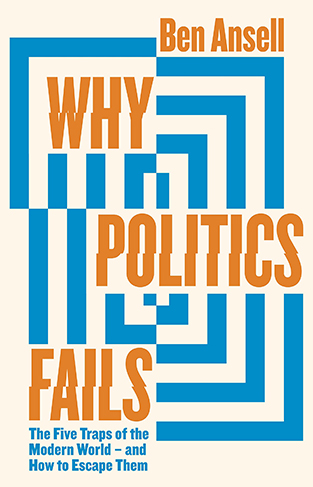
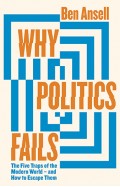

-120x187.jpg?q6)





